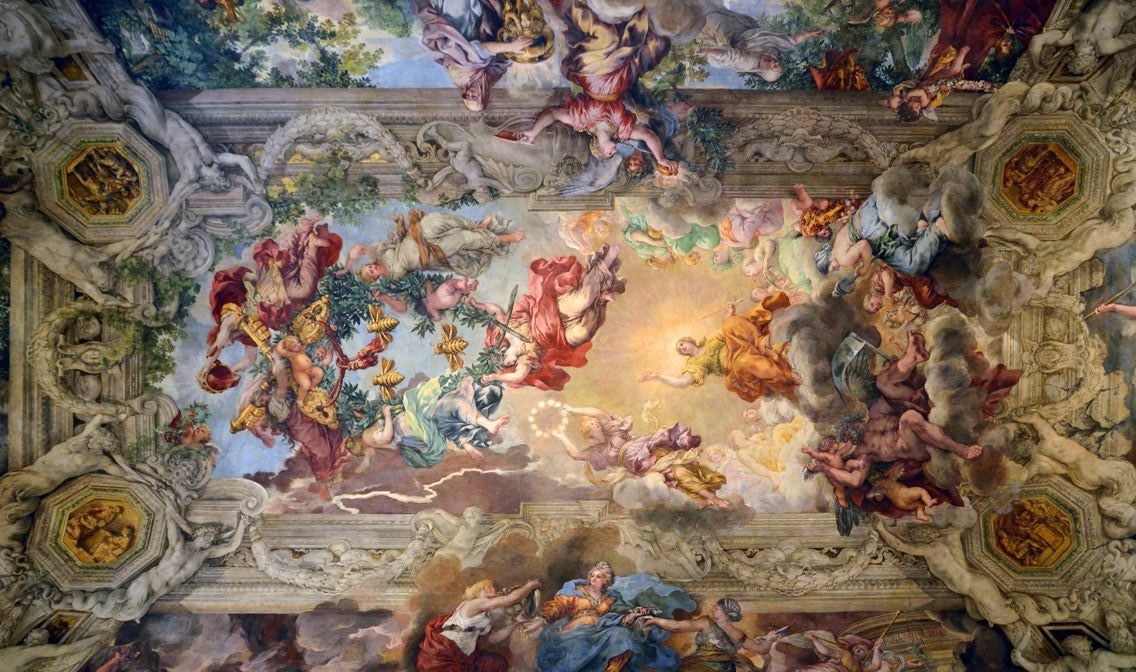Italian literature is a literary tradition with a deep history and rich content, which has left profound impacts on European and world literature. Spanning from the Middle Ages to the Renaissance, the Baroque period to modernism, Italian literature has been a powerful reflection of the cultural and socio-political transformations of society. One of the most significant works in Italy’s literary heritage is Dante Alighieri’s Divina Commedia (The Divine Comedy). Dante is considered the father of the Italian language, and this work is one of the most important masterpieces not only in Italy but in Western literature. The Divine Comedy was written in the Italian vernacular, which was revolutionary at a time when Latin dominated literature. The work intertwines Dante’s personal life experiences with universal themes such as the afterlife, ethics, and human nature.
Alongside Dante, figures like Giovanni Boccaccio and Francesco Petrarca were foundational in the development of Italian literature. Boccaccio’s Decameron popularized the narrative tradition and the novella genre in Italy. Comprising stories told by a group of people during an outbreak of plague, the work is filled with social criticism and questions the morality of the time. Petrarca, known for his love poetry, was one of the pioneers of humanism. His poetry is characterized by an exploration of the individual’s inner world, emotions, and thoughts.
The Renaissance period was a time of great revival in Italian literature. Niccolò Machiavelli’s Il Principe (The Prince) holds a significant place in political thought history, introducing the precursor to political realism by analyzing power and political relationships. Machiavelli offers a pragmatic, goal-oriented perspective while examining unethical behavior in politics. Other notable works from this period include Ludovico Ariosto’s Orlando Furioso and Torquato Tasso’s Gerusalemme Liberata, both epic poems that remain key examples of Renaissance literature. During this period, Italian literature made a significant impact not just within the country but across Europe.
In the Baroque and Rococo periods, Italian literature gained an emphasis on sentimentality and aesthetic concerns. Pastoral poetry and theater became particularly popular during this time. Figures like Pietro Metastasio contributed to the development of opera, shaping the genre’s evolution. Italian theater, especially Commedia dell’arte, had a wide influence across Europe and inspired modern theater. This tradition, which emphasized improvisation and masked characters, aimed to create a close relationship with the audience.
In the 19th century, Italian literature developed alongside the process of Italy’s unification, known as the Risorgimento. Writers and poets of this period contributed to the development of Italy’s national identity. Alessandro Manzoni’s novel I Promessi Sposi (The Betrothed) is one of the first great novels of Italian literature and reflects the spirit of the Risorgimento. Through a love story, the novel sheds light on Italy’s political issues and social dynamics. Manzoni’s work also contributed to the standardization of the Italian language.
By the 20th century, Italian literature had been enriched by a variety of literary movements, including modernism, futurism, and neorealism. Luigi Pirandello became a significant figure in modern theater with works like Sei Personaggi in Cerca d’Autore (Six Characters in Search of an Author). Pirandello’s works explore themes such as the search for identity and the relationship between reality and fiction. Futurist poet Filippo Tommaso Marinetti, on the other hand, rejected traditional literature, writing works that celebrated speed, mechanization, and urban life. This movement was shaped by the destructive impact of World War I and inspired profound changes in Italy.
After World War II, the neorealist movement became influential in Italian literature. This movement focused on the social realities of post-war Italy, addressing themes like poverty, inequality, and injustice. Authors like Italo Calvino, Cesare Pavese, and Alberto Moravia were prominent figures in this period. Calvino, in particular, created a new narrative style by blending fantasy elements with modern urban life in works like Le città invisibili(Invisible Cities).
Today, Italian literature continues to carry forward this rich legacy, blending the issues of the modern age with the inner world of the individual, drawing from both its historical roots and contemporary concerns.
Resources:
(Turkedebiyati.org, 2017)
(Italy Chronicles, 2019)
(Buse Yılmaz, 2021)
(Bubisanat, 2020)
(Ebru Balamir, 2010)

